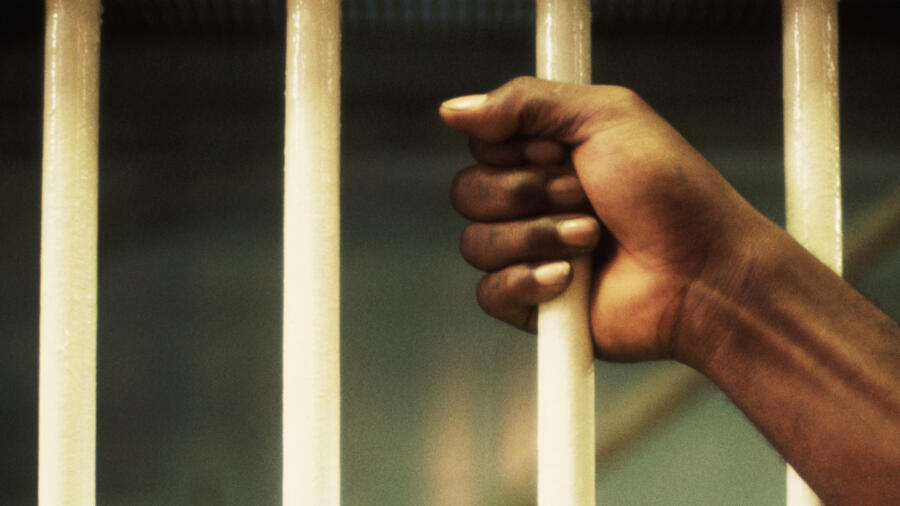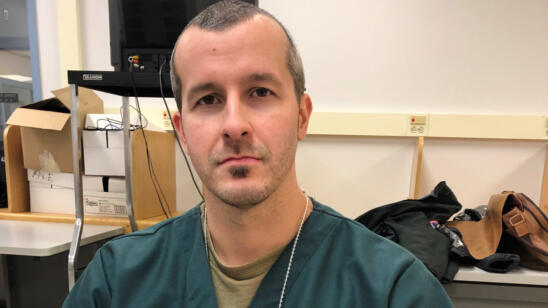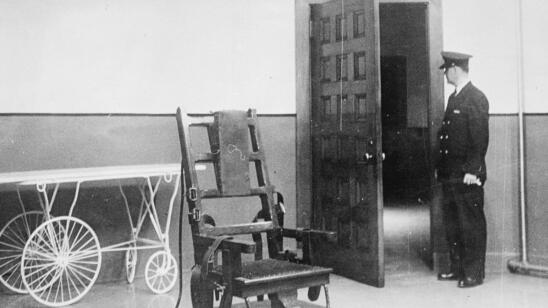Arkansan Rickey (also spelled “Ricky”) Ray Rector always had a troubled mind. As a child, he kept to himself. As an adolescent, he fought regularly with peers. By 17 years old, he was a career criminal, getting charged for a litany of offenses: disorderly conduct, assault and battery, grand larceny, forgery.
That gradual crescendo of disturbing behavior reached its peak in March 1981, when over the course of four days he shot five people with his .38-caliber pistol.
First, there were three men outside a dance hall in his hometown of Conway. He and some friends had been refused entry to the club because they couldn’t afford the $3 cover. One of the shooting victims, Arthur Criswell, died after being struck in the forehead and throat.
After hiding out at his sister’s house, Rector consented to being arrested by Conway patrolman Robert Martin, who had known Rector since his childhood. But when Martin entered the house to make the arrest, Rector shot him as well.
Then Rector went out into the backyard, told a neighbor that he’d shot the officer, and turned the gun on himself, firing a bullet into his left temple.
After paramedics were called, both Rector and Martin were rushed to the hospital. Martin succumbed to his injuries. Rector survived.
Rector, Before and After
Rector had cognitive difficulties even before his injury. In junior high school, he struggled with his studies, and those academic challenges—combined with the aforementioned behavioral issues—led to his expulsion in tenth grade.
But the self-inflicted gunshot wound meant massive permanent brain damage on top of those problems.
Surgeons at Conway’s hospital removed approximately three inches of Rector’s frontal lobe—cerebral wreckage that extended from Rector’s left temple to his right ear. After the surgery, Rector had an IQ of 70.
“He was like a naïve, small child,” Jeff Rosenzweig, who was Rector’s attorney, tells A&E True Crime. “Think of a 4-year-old. He could carry on a conversation, but he certainly didn’t understand any abstract concepts, such as death.”
But a slew of psychologists and psychiatrists offered by the prosecution and the defense gave contradicting testimonies to the degree of Rector’s cognitive decline. The courts ultimately sided with prosecuting attorneys when both trial judges—for both Criswell and Martin’s murders—found him competent to stand trial.
For the Criswell murder, Rector was given life imprisonment. For the Martin murder, he was sentenced to death.
Rector’s Final Days
As Rector’s appeals were exhausted, it became clear that Arkansas’s governor, Bill Clinton, was Rector’s last chance at mercy via the gubernatorial power of executive clemency.
The execution date was slated for January 24, 1992, a few weeks prior to the Iowa caucuses and New Hampshire primaries, the first contests in the electoral process that would lead to Clinton earning the party’s presidential nomination. Clinton flew back to Arkansas from the campaign trail to be in the state for Rector’s execution.
Rosenzweig says he had a long-running relationship with Clinton. Both men had grown up in the small city of Hot Springs. “I’d known Bill Clinton since the 1960s. My father was his pediatrician. We knew each other fairly well,” he says.
And while Rosenzweig says Clinton was largely congenial, when they spoke by phone a few hours prior to Rector’s scheduled execution, the governor seemed unmoved by Rosenzweig’s plea for Rector’s life.
“I explained to him that I knew Rector personally—obviously [Clinton] did not—and that he was, in fact, not competent. And I tried to explain that to him.”
For Rector’s last meal, he ordered steak, fried chicken, cherry Kool-Aid and a slice of pecan pie. He ate all of it but the pie, telling a guard he was “saving it for later.”
Rector died via lethal injection at 10:09 p.m.
The Ethics of Executing the Mentally Impaired
Rickey Ray Rector was executed, in part, because the defense was unable to persuade the courts that his mental deficiency was as extreme as they alleged. But given that he’d only become mentally deficient after committing his crimes, should that deficiency have factored into his punishment anyway?
According to the Supreme Court, yes.
The 1986 ruling Ford v. Wainright codified that it is wrong to execute people who don’t understand what’s happening to them or why they’re being punished. Panetti v. Quarterman in 2007 reaffirmed that decision.
According to Stephen Morse, a professor of psychology and law in psychiatry at the University of Pennsylvania, the courts have never offered a singular, coherent ethical explanation for why the condemned need to reach a baseline competence level to be put to death. And he says there are strong rational arguments for why a condemned prisoner’s intelligence shouldn’t matter.
“If you really don’t understand what’s happening to you, you’re going to be less afraid,” Morse tells A&E True Crime. “And the public might think: ‘Gee, as long as he was properly convicted and properly sentenced and deserves to die, the state should keep its promise, even if he doesn’t understand what’s happening to him.'”
But Morse says that basic human dignity favors not overly punishing the mentally deficient. And that argument, he says, has proven more persuasive in the courts.
“To many people, it seems incredibly inconsistent with the dignity of the law to execute people who don’t know why it’s being done to them,” Morse says. “It doesn’t treat the individual with the dignity he deserves, to have full autonomy to make the choices allowed to him—including things as simple as what his last meal will be.”
Related Features:
Cooking Up the Last Meals of Death Row’s Most Notorious Killers
David Carpenter: The Serial Killer Who Made California Parks His Human Hunting Ground
Forensic Psychologist Revisits the Killers He Can’t Forget, and Lays Out Rules for Staying Safe


